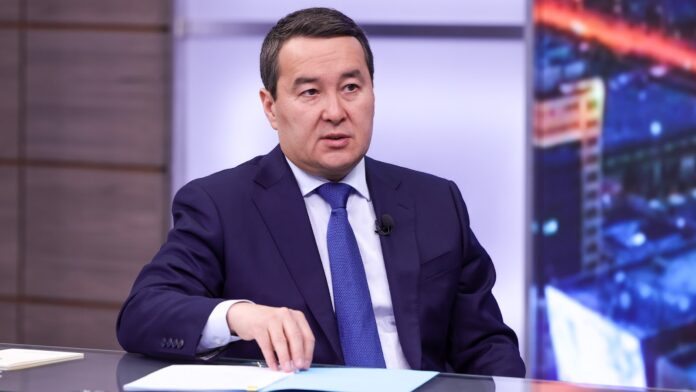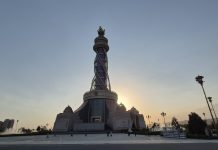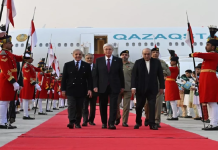ASTANA: In a national TV channel interview, Prime Minister Alikhan Smailov reported on the positive economic trends in Kazakhstan throughout the year, according to the Prime Minister’s press service.
Smailov reported a stable economic growth of 4.9% in the first 11 months, despite global challenges. He projected a year-end growth of around 5%.
He also mentioned positive trends in all major sectors, such as construction (13%), trade (11%), and communications (8%).
The Prime Minister said that investment was the main driver of economic growth, as its volume in fixed capital rose by 15% to 15 trillion tenge ($33 billion).
He highlighted Kazakhstan’s leadership in gross inflow of foreign direct investment (FDI) among Central Asian countries. FDI increased by 18% and reached $28 billion last year, the highest figure for the country in a decade.
Smailov said that Kazakhstan’s economy attracted $13.3 billion in the first half of the year. He expected nearly $27 billion by the end of 2023.
He also shared President Kassym-Jomart Tokayev’s initiative to double the national economy to $450 billion by 2029. He revealed plans to attract at least $25 billion of FDI every year. He added that a nationwide pool of about 1,000 investment projects worth over 32 trillion tenge ($70.2 billion) would be implemented in the future.
He said that this would ensure a 6% economic growth in the medium term.
Prime Minister Smailov stated that the year-end inflation rate would be 9.8%, a twofold reduction. He said that the next year’s target was an inflation rate of 6-8%.
The Prime Minister also praised the commitment of the private investor to allocate at least $3 billion over the next three-four years, including $1.3 billion in the coming year to the Qarmet Karagandy Metallurgical Plant.ater supply, energy supply, traffic, and gas supply issues.
He said that several major projects in the country helped to address water supply, energy supply, traffic, and gas supply issues.
The Prime Minister talked about the significant increase in transit traffic, with 13 international corridors, and the construction of new railway lines, including the Bakhty-Ayagoz line to increase capacity between Kazakhstan and China.
He said that the transit traffic volume this year rose by 21% to 30 million tons.
Smailov emphasized the ambitious railway construction plans, exceeding 1,300 kilometers in the next 3-4 years, compared to 2,500 kilometers in the past 30 years. He said that maritime transport development included building a container hub in Aktau by 2025 and launching a grain terminal in the Kuryk port, with ongoing construction of the Sarzha multifunctional terminal.
He also outlined plans to construct and reconstruct 11,000 kilometers of roads, including 7,000 kilometers within the national network.
Shift from raw material extraction to higher value-added industries
He said that the manufacturing industry matched the mining sector in volume and continued to grow, indicating a substantial change in the industrial structure.
He said that over 600 billion tenge ($1.3 billion), including preferential lending, was allocated to facilitate the implementation of new projects. He said that about 300 non-resource sector projects, valued at 1.6 trillion tenge ($3.5 billion), would be commissioned by year-end, with 170 projects worth around 800 billion tenge ($1.7 billion) specifically in the manufacturing industry.
He said that over 400 projects with a total value of 4.6 trillion tenge ($10 billion) would be introduced next year. He stressed that this would accelerate the process of diversification and reduce the dependence on raw materials.






